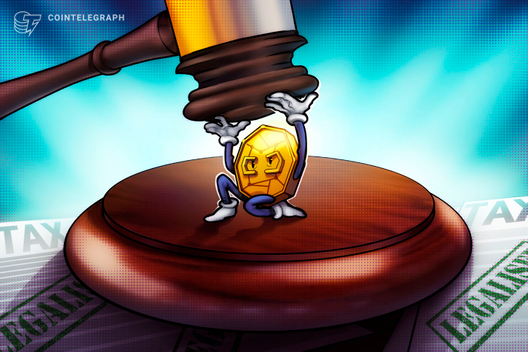A ‘token’ gift: The US SEC giveth and taketh away
On Dec. 23, 2020, the SEC published a statement proposing a framework for broker-dealers to custody digital asset securities in a manner consistent with Rule 15c3-3 under the Securities Exchange Act of 1934. Among other things, the statement, which will expire after a period of five years from publication, provides that a broker-dealer may custody digital asset securities so long as it operates consistent with the enumerated conditions set forth in the statement, including but not limited to, restricting its business exclusively to digital asset securities, instituting robust written policies and procedures, and ensuring that it has exclusive control over custodied digital asset securities.
Prohibition on non-digital asset securities business
It is important to emphasize that this statement only offers relief to broker-dealers that limit their activities exclusively to digital asset securities, with a focus on custody of such securities. In contrast to some misinformed industry reactions to the contrary, broker-dealers wishing to custody digital asset securities are categorically prohibited from custodying non-digital asset securities such as Bitcoin (BTC) — or for that matter engaging in any non-digital asset securities activity of any kind. Of course, while clearly not the motivating factor behind the SEC’s prohibition on non-securities digital asset business activity, a broker-dealer that is to engage in such activity would be subject to various state money transmitter licensing requirements.
The SEC’s statement also prohibits broker-dealers from engaging in any other types of traditional securities business. Therefore, in order to take advantage of the proposal announced in the statement, and in order to custody digital asset securities, currently operating broker-dealers are placed in the sadistic and bizarre position of having to shed most, if not all, of their currently existing business lines. The uninitiated might presume that existing clearing firms, with their sophisticated operational capabilities, expansive industry arrangements and robust technical competence would be well-positioned to make the first foray into custody of digital asset securities — they would, according to the SEC, be wrong.
Better yet, after taking the axe to extraneous business lines, and having presumably navigated the Financial Industry Regulatory Authority, or FINRA, approval process, one might rightly assume there is clarity as to what exactly constitutes a digital asset security and hope that a thriving regulatory environment exists to successfully anchor a business focused entirely on the custody of digital asset securities — wrong again.
The recent action against Ripple makes abundantly clear that a consensus has yet to be formed as to what exactly constitutes a “digital asset security.” Despite its longevity, the application of the Howey Test to all manner of digital instruments continues to prove a woefully inelegant and imprecise solution to a problem that requires exactitude and consistency. The SEC’s strict application of the Howey Test to digital assets also prohibits broker-dealers from taking a practical, if not expansive, approach to custody by treating all digital assets as digital asset securities.
Related: SEC vs. Ripple: A predictable but undesirable development
FINRA membership process
Furthermore, in order to take advantage of the SEC’s statement and custody digital asset securities, broker-dealers will be forced to engage in a potentially protracted and burdensome FINRA membership process. A broker-dealer wishing to engage in any digital asset activities (whether securities or non-securities) may not do so without first obtaining FINRA’s prior approval.
We believe the SEC’s statement proposal is likely only appealing to a small handful of companies that may already operate state-chartered trusts (to effectuate custody of non-securities digital assets) and have already contemplated or submitted FINRA membership applications to custody digital asset securities. While the statement reflects the views and position of the SEC, it is clear then that the ultimate implementation of this statement and assessment of its accompanying conditions will effectively fall to FINRA.
As some market participants are no doubt painfully aware, FINRA has historically struggled to capably and efficiently navigate the technical and regulatory implications of digital asset technology — in some instances leaving a number of broker-dealer applicants in a perpetual state of uncertainty or forcing them to abandon the application process entirely.
Related: FINRA: An unnecessary, unqualified digital asset regulator
Securities Investor Protection Act
The SEC rightly acknowledges the importance of the treatment of digital asset securities held by a broker-dealer in the context of the Securities Investor Protection Act of 1970, or SIPA. The SEC posits that because digital asset securities do not constitute “securities” under SIPA, that customers of a broker-dealer custodying digital assets may be treated as general creditors in the context of a SIPA liquidation, thereby receiving less protection than they would enjoy in the context of traditional securities.
This topical, undeveloped analysis betrays the SEC’s seeming failure to adequately account for the practical, commercial and technological realities of digital asset security custody. Rather than suffer as unsecured creditors as the SEC suggests, in the context of a digital asset custodian broker-dealer undergoing a SIPA liquidation, the following is clear:
- Assets held in a trust and that can be traced from their source are not considered the property of the debtors — i.e., the broker-dealer’s — estate.
- For purposes of such property, such assets are not subject to pro-rata distribution to unsecured creditors under SIPA but, rather, would be returned to each of the respective customers as a return of non-estate property.
Therefore, contrary to the assertions made in the SEC’s statement, by simply utilizing segregated customer wallets, standard custody agreement documentation and harnessing the distributed ledger technology underpinning digital asset securities, broker-dealers custodying customer digital asset securities may ensure that their customers are in fact adequately protected and, therefore, will not constitute unsecured creditors in the context of a SIPA liquidation.
Conclusion
The SEC’s statement does not exist within a vacuum, and the considerable ancillary regulatory uncertainties, the expected protracted FINRA approval process, as well as the heavy-handed business constraints all serve to sap the expected effectiveness of the statement and ultimately undermine the SEC’s stated goal of supporting innovation in the digital asset securities market to develop its infrastructure.
The views, thoughts and opinions expressed here are the author’s alone and do not necessarily reflect or represent the views and opinions of Cointelegraph.
Ethan Silver chairs Lowenstein Sandler’s fintech practice. His practice focuses on advising cryptocurrency, blockchain and digital asset businesses navigating federal and state regulatory frameworks. He also counsels cryptocurrency trading platforms, exchanges, custodians and related businesses with respect to federal securities laws and works with technology-focused broker-dealers and robo-advisors on formation, structuring and regulatory matters.









